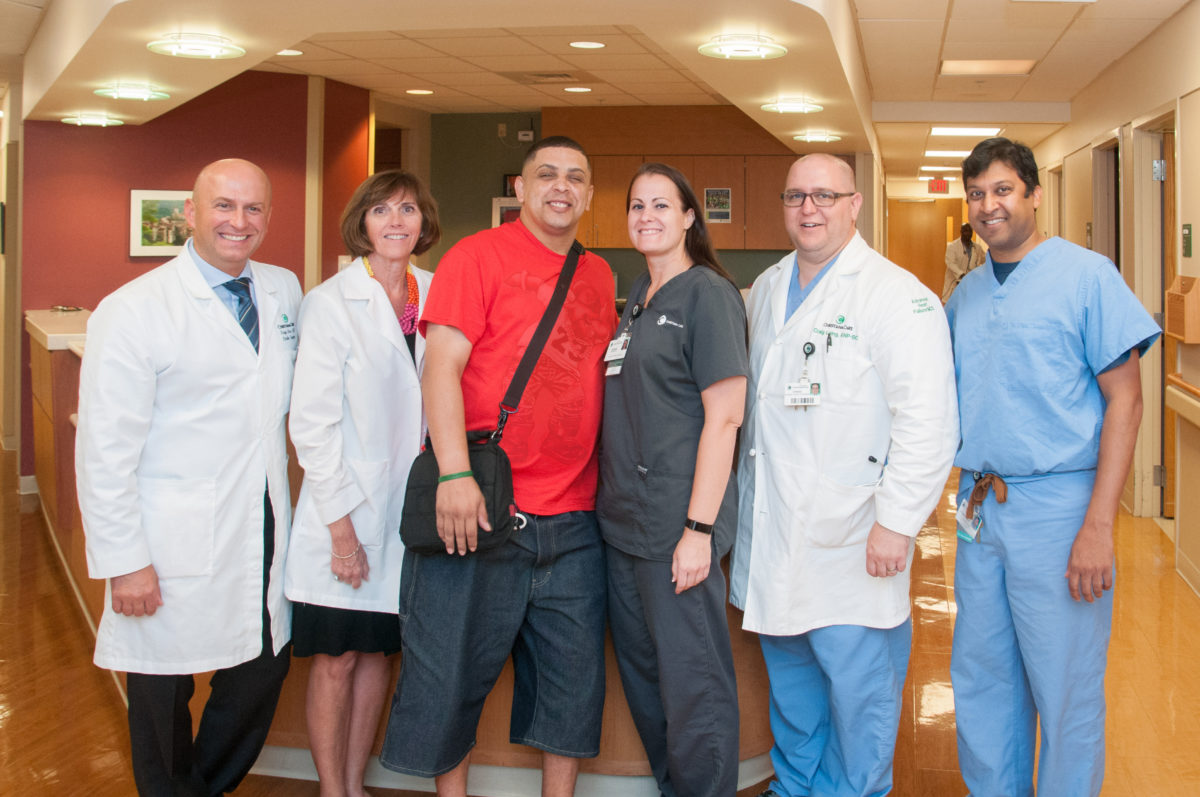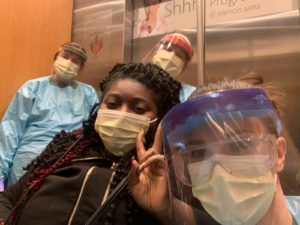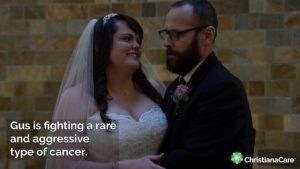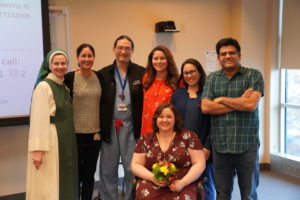It’s a Wednesday morning and Miguel Denizac arrives for a checkup with the team from the Heart Failure Program in Christiana Care’s Center for Heart & Vascular Health.
He smiles as he gives a high-five to Craig Laing, MSN, CRNP. Susan Roberto, a Cardiology team lead, comes from behind her desk for a hug. “It’s always great to see you, Miguel,” she says.
A little more than a year ago, Denizac was frightened and upset. At age 33, he collapsed and was rushed to the hospital. “I couldn’t breathe. I felt like I was going to vomit,” he recalled, speaking through a medical interpreter. “When they got me to the hospital, they couldn’t find a pulse. Right there, they found a problem with my heart.”
Denizac was diagnosed with cardiomyopathy, essentially a weak heart, sometimes with no known cause. He was in heart failure, a condition in which the heart can’t pump enough blood to serve the body’s needs.
It was hard for him to understand. A native of Puerto Rico, Denizac speaks only Spanish. Back home, he had been diagnosed with bronchitis and other lung problems, but not heart disease.
“With younger patients, receiving a diagnosis of heart failure hits them like a ton of bricks,” said Niya Jones, M.D., MPH, a cardiologist who specializes in advanced heart failure. “Understandably, it can be a very difficult diagnosis to accept.”
Denizac’s best hope for survival was a left ventricular assist device or LVAD, a battery-operated mechanical device that takes over the job of the left side of the heart. But he was reluctant to cooperate with his care. To receive an LVAD implant, patients must be able to follow treatment plans and care for the device.
“I resisted. I wouldn’t take my medicine. I didn’t want nurses in my room,” he recalled. “I was not an easy patient.”
One of Denizac’s greatest barriers to care was language. To break down that wall, the Heart Failure team partnered with Language Services, which provided qualified medical interpreters during his appointments.
Roberto became his advocate. She believed that Denizac could overcome his resistance and do well managing his LVAD.
“We talked a lot, especially about his family,” she recalled. “He was afraid that he was going to die and not see his children grow up.”
Through his interpreters, he gained a thorough understanding of the surgery and the positive impact it would have on his life. That knowledge, imparted in his native tongue, made him feel safe and cared for. He learned to trust his care team and cooperate with them as a partner in his health.
On Sept. 10, 2017, cardiac surgeon Franjo Siric, M.D., implanted Denizac’s LVAD. When he was recovering in the cardiac intensive care unit, Language Services provided interpreters around the clock.
Soon after his return home, his children, Luelesihka and Miguel, came for an extended visit.
“I explained the machine to them, and they accepted it right away,” he said. “When my little boy heard the battery alarm go off, he ran to get me a new battery.”
He talked with them about a heart-healthy diet that is low in fat and salt, and showed them how to read the labels on food. He explained that he limits his intake of liquids because people with heart failure tend to retain fluids.
Sourin Banerji, M.D., who leads the Heart Failure team, said Denizac’s case shows how patients benefit when colleagues throughout the health system work together as a team.
“To get Miguel where he needed to be required Language Services, Nutrition and Behavioral Health, in addition to Heart Failure,” he said. “It is remarkable what can be accomplished when we all work together.”
Today, Denizac has completed cardiac rehabilitation and he is back to riding his bicycle. With few exceptions, he can do many things he’s always enjoyed. Ultimately, he would like to have a heart transplant.
In the meantime, he is continuing to partner with his team at Christiana Care.
“I’ve been coming here for a year, and we have really good communication,” he said. “It’s not like going to the doctor. It’s more like checking in with friends.”



